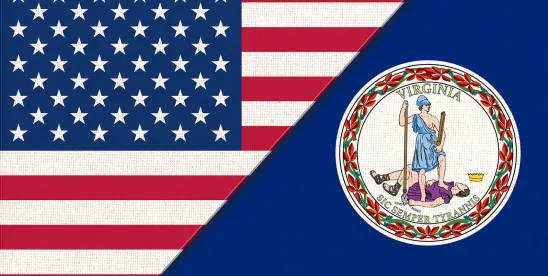Virginia’s governor recently signed into law a bill that amends the Virginia Consumer Data Protection Act. As revised, the law will include specific provisions impacting children’s use of social media. Unless contested, the changes will take effect January 1, 2026. Courts have struck down similar laws in other states (see our posts about those in Arkansas, California, and Utah) and thus opposition seems likely here as well. Of note, the social media laws that have been struck down in other states attempted to require parental consent before minors could use social media platforms. This law is different, as it allows account creation without parental consent. Instead, it places restrictions on account use for both minors and social media platforms.
As amended, the Virginia law will require social media companies to use “commercially reasonable” means to determine if a user is under 16. An example given in the law is a neutral age gate. The age verification is similar to those proposed other states’ social media laws. (And it was that requirement that was central to the court’s decision when striking down Arkansas’ law.) Use of social media by under-16s will default to one hour per day, per app. Parents can increase or decrease these time limits. That said, the bill expressly states that there is no obligation for social media companies to give those parents who give their consent “additional or special access” or control over their children’s accounts or data.
The law will limit use of age verification information to only that purpose. An exception is if the social media company is using the information to provide “age-appropriate experiences” – thought the bill does not explain what such experiences entail. Finally of note, even though these provisions may increase costs on companies, the bill specifically prohibits increasing costs or decreasing services for minor accounts.
Putting it Into Practice: We will be monitoring this law to see if the Virginia legislature has success in regulating children’s use of social media. This modification reflects not only a focus on children’s use of social media, but also continued changes to US State “comprehensive” privacy laws.
James O'Reilly contributed to this article




 />i
/>i

